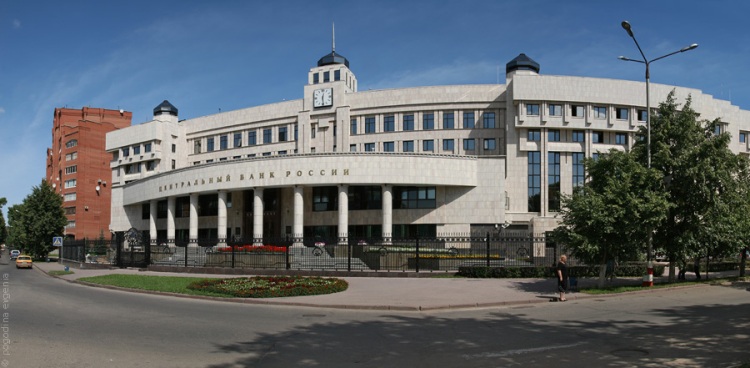Russian central bank slashes key rate, sees room to cut further
"This allows us to lower the key rate today without creating new pro-inflationary risks." RISKS ARE EASING The central bank said external conditions for the Russian economy are still challenging but financial stability risks have somewhat decreased, opening room for easing of some capital control measures.

- Country:
- Russian Federation
Russia's central bank slashed its key interest rate to 11% on Thursday and said it saw room for more cuts this year, as inflation slows from more than 20-year highs and the economy heads towards a contraction.
It announced the move at an extraordinary meeting after two previous 300 basis-point cuts to 14% following a late-February emergency rate hike to 20% triggered by Russia's move to send tens of thousands of troops into Ukraine on Feb. 24. The central bank said it "holds open the prospect of a key rate reduction at its upcoming meetings."
Governor Elvira Nabiullina said the bank had prevented an inflationary spiral and protected financial stability, but she warned that the economy was entering a period of structural transformation and banks needed additional capital support. Inflation expectations are falling, she told a banking conference in Moscow, helping to significantly lower inflationary risks.
Meanwhile, the rouble's recent appreciation to multi-year highs has had a significant, if temporary, disinflationary impact, she said. The rouble has been supported this year by capital controls that Russia imposed in late February to cap financial stability risks and defend itself against sweeping western sanctions.
"Thanks to these factors, inflation is falling faster than we expected," she said. "This allows us to lower the key rate today without creating new pro-inflationary risks." RISKS ARE EASING
The central bank said external conditions for the Russian economy are still challenging but financial stability risks have somewhat decreased, opening room for easing some capital control measures. The rouble's performance has "given policymakers room to reverse emergency measures introduced since February," Capital Economics analysts said in a note.
"We suspect that the CBR won't continue this pace of easing... A further easing of capital controls and additional rate cuts seem likely," they said. The rouble slumped on the day, extending intraday losses as Nabiullina spoke, sliding to 63.41 against the dollar, down 6.9% on the day.
The central bank could cut its key rate further by 50-100 basis points at the next rate-setting meeting scheduled for June 10, said Dmitry Polevoy, head of investment at LockoInvest. Nabiullina did not mention the bank's 2022 inflation forecast, which previously stood at 18-23%, but said inflation would slow to 5-7% in 2023 before reaching its 4% target in 2024.
Inflation, which slowed to 17.51% as of May 20 from 17.69% a week earlier amid a decline in consumer activity, is hovering near its highest since early 2002. High inflation dents living standards and has been one of the key concerns among Russians for years.
On Wednesday, President Vladimir Putin ordereda 10% rise in pensions and the minimum wage to cushion Russians from inflation. He denied the country's economic problems were all linked to what he calls its "special military operation" in Ukraine, which has prompted the West to impose unprecedented sanctions against Russian banks, companies, business leaders, and figures close to the Kremlin.
(This story has not been edited by Devdiscourse staff and is auto-generated from a syndicated feed.)
- READ MORE ON:
- Russians
- Moscow
- Vladimir Putin
- Russia
- Elvira Nabiullina
- Ukraine
- Capital Economics
- West
- Russian
ALSO READ
Floods swamp swathes of Russia and Kazakhstan but worse still to come
Biden and Japan's Kishida forge new partnership, eyeing China and Russia
Russia intensifies crackdown on dissent by placing additional Kremlin critics on wanted list
Blasts heard in Ukraine's Kharkiv, Zaporizhzhia region
Russia launches 'counter-terrorist operation' in southern region, RIA reports










